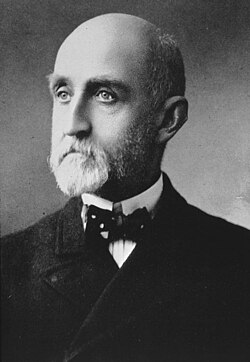Alfred Thayer Mahan Quote
Whether they will or not, Americans must now begin to look outward. The growing production of the country demands it.
Alfred Thayer Mahan
Whether they will or not, Americans must now begin to look outward. The growing production of the country demands it.
Tags:
america
Related Quotes
Nowadays, a simple faulty brake light traffic stop, can get a black person killed. It's better to fix the broken light bulb, then having to face and cooperate with a senseless police officer.
Anthony Liccione
Tags:
african american, america, black, blacklivesmatter, citizen, come to terms, come together, death, equality, fatal
Unfortunately, the board of directors that the middle managers report to generally make them aggressive. Imagine being hired into a company and then being told that you have to ignore the emerging hea...
Steven Magee
Tags:
activities, aggressive, america, board, company, corporate, dangerous, directors, emerging, engage
There is coming a day, when freedom will just be a essence of the mind, an inner dwelling that was once physically attainable. They will tell you where you can live, and what you can wear and drive, w...
Anthony Liccione
Tags:
abolish, after the rapture, age, america, antichrist, authority, bird, brainwash, buy and sell, cage
About Alfred Thayer Mahan
Alfred Thayer Mahan (; September 27, 1840 – December 1, 1914) was a United States Navy officer and historian whom John Keegan called "the most important American strategist of the nineteenth century." His 1890 book The Influence of Sea Power upon History, 1660–1783 won immediate recognition, especially in Europe, and with the publication of its 1892 successor, The Influence of Sea Power upon the French Revolution and Empire, 1793–1812, he affirmed his status as a globally-known and regarded military strategist, historian, and theorist. Mahan's works encouraged the development of large capital ships—eventually leading to dreadnought battleships—as he was an advocate of the 'decisive battle' and of naval blockades.
Critics, however, charged him with failing to adequately explain the rise of largely land-based empires, such as the German or Ottoman Empires, though Mahan did accurately predict both empires' defeats in World War I. Mahan directly influenced the dominant interwar period and World War II-era Japanese naval doctrine of the "decisive battle doctrine" (艦隊決戦, Kantai Kessen), and he became a "household name" in Germany. He also promoted American control over Hawaii though he was "lukewarm" in regard to American imperialism in general. Four U.S. Navy ships have borne his name, as well as various buildings and roads; and his works are still read, discussed, and debated in military, historical, and scholarly circles.
Critics, however, charged him with failing to adequately explain the rise of largely land-based empires, such as the German or Ottoman Empires, though Mahan did accurately predict both empires' defeats in World War I. Mahan directly influenced the dominant interwar period and World War II-era Japanese naval doctrine of the "decisive battle doctrine" (艦隊決戦, Kantai Kessen), and he became a "household name" in Germany. He also promoted American control over Hawaii though he was "lukewarm" in regard to American imperialism in general. Four U.S. Navy ships have borne his name, as well as various buildings and roads; and his works are still read, discussed, and debated in military, historical, and scholarly circles.
